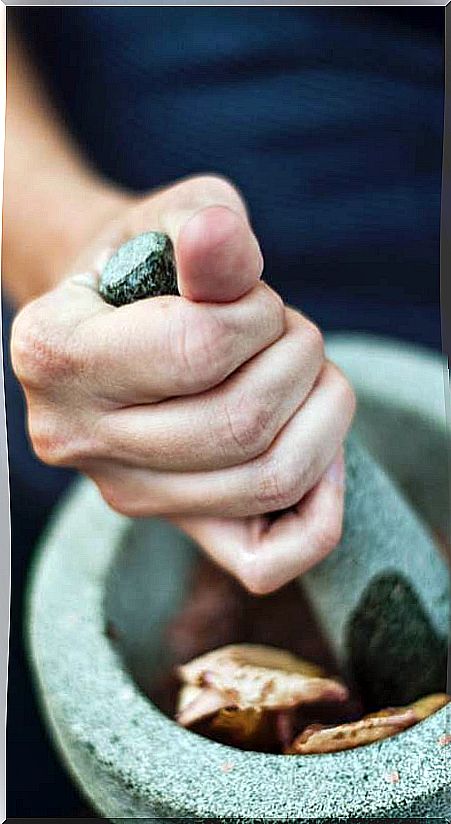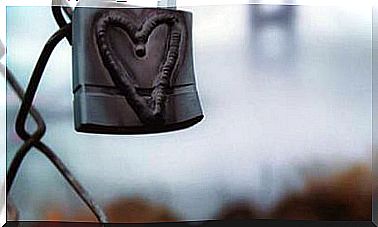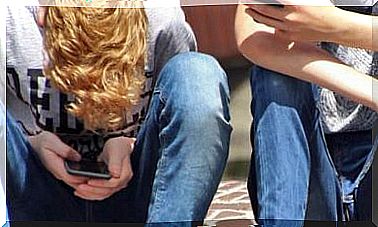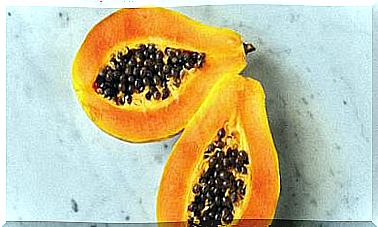Integrative Medicine Against Cancer
In the face of cancer, there is much that natural therapies can do to improve the prognosis and alleviate the side effects of conventional treatments.

Receiving a cancer diagnosis is a blow. The patient is at a vital crossroads and has to draw strength from weakness to face the disease. The same happens to your loved ones.
After the initial alarm, they channel all their energies to get the best treatment, as well as the most trained hospital and oncologist available to them. For the patient, it is logical to resort to everything that can offer some help.
However, he runs into separate worlds: that of conventional medicine and that of natural therapies. Most do not comment with their oncologist that they follow other treatments, because they believe that they will not understand them and they will advise against them.
This lack of communication can stress you when you least need it or lead you to follow contraindicated or ineffective treatments.
Choose well natural therapies
The integrative oncology seeks to overcome these problems by offering the possibility of combining all kinds of therapies that improve the quality of treatment. This trend is in our country in its first steps.
Míriam Algueró, daughter of a patient, founded together with her sisters, in 2014, the Integrative Oncology Association, in which oncologists and professionals of complementary and alternative therapies of recognized prestige participate, in order to make them accessible to the elderly. possible number of patients.
Its objectives are to offer information on therapies and other medicines that improve the quality of life of cancer patients and guide them so that they do not start trying all therapies, but rather choose based on the therapeutic benefit they seek.
This association also promotes the conduct of scientific studies that demonstrate the benefits of natural therapies.
Improve Life Quality
Miriam Algueró assures that “all the people with whom we have been in contact and who have used complementary therapies during their cancer treatments acknowledge having benefited from enjoying a better quality of life than other patients”.
Part of the positive effects can be explained by a reduction in stress, which causes a more effective immune response. In this sense, the usefulness of yoga, meditation, kinesiology, Bach flowers or reiki stands out.
It also stresses how essential, from the moment of diagnosis, to follow an anticancer diet and to resort to homeopathy and acupuncture to treat the side effects of conventional treatments.
It is often argued from the most orthodox positions of medicine that natural therapies have not proven their effectiveness, which slows the advance of comprehensive treatment.
In reality, it is an obstacle overcome in practice, as shown by the incorporation of complementary treatments in Dutch and German healthcare or the existence of an agency for complementary and alternative oncology within the United States public administration (OCCAM).
It would be difficult to imagine that these initiatives would have been launched without objective evidence. In Spain some public centers are progressing discreetly towards integrative oncology.
The help of homeopathy
Dr. Laura Vidal, who was responsible for the gynecological oncology department of the Hospital Clínic de Barcelona between 2008 and 2015, explains that 60-70% of her patients used complementary therapies. In their case they did not have to fear the reaction of the oncologist. “I dedicate myself to conventional medicine, but I am open and I believe that complementary medicines have a value. For example, homeopathy seems very positive to me to better tolerate side effects of chemotherapy, such as nausea, vomiting and intestinal disorders. I have also seen cases in which it improves the level of defenses. In my consultation I empirically verified that it was effective “.
This was the case of a 72-year-old patient with ovarian cancer who reacted to the chemo with lowered defenses and many sores in the mouth, intestinal disorders and eczema, and who, thanks to homeopathy, managed to finish the treatment without reducing its intensity.
At least seven out of ten cancer patients turn to natural or complementary therapies.
“Patients become more proactive, engaged in treatment and feel they are more in control of their disease process and experience the side effects and the disease itself better. I have no doubt that this improves treatment tolerance and outcome. final “, continues Dr. Vidal, who explained her experiences in the consultation in the book We want to be with you (Ed. Planeta).
Professionals who know
He also relies on acupuncture to reduce the need for medication and prevent nausea and vomiting, or reflexology, but he misses bridges between his conventional and complementary medicine. “At least someone should receive reports of the treatments the patient receives and coordinate them,” he suggests.
She was the one who did it: she asked the patients if they were taking something and made sure there were no contraindications. “More and more people are looking for complementary medicine professionals who really know, but if they came to me with information they had found on the internet or were interested, I would recommend professionals outside the public service. I would go to the College of Physicians, which trains acupuncturists and homeopaths, or to doctors who had a background that he knew, “he explains.
Neither conventional nor complementary treatments always work. False expectations cannot be presented to the patient, Laura Vidal warns, but everything that serves to improve lifestyle, diet and reflection will be positive.
” Complementary medicines are useful throughout the entire process, from diagnosis to treatment and beyond,” he adds.
“It would be ideal if there were centers with an integrative approach, as there are in Germany. It would be necessary to talk about the economic factor, whether with the money that there is, all therapies can be paid – sometimes private mutuals do not even pay for chemotherapy treatments. -. If the public health does not take charge of the complementary therapies, perhaps it could facilitate the access of the professionals to the centers with reasonable rates “, proposes.
Less toxic load and more customization
According to Dr. Vidal, we are in a paradigm shift. It is becoming more and more important to individualize, looking at the type of cancer and the person to decide the most appropriate treatment. The traditional chemotherapy is becoming history. Genetic mutations in cancer are being studied to synthesize specific drugs.
The treatments will be less toxic, but it will be necessary to continue treating immune, emotional, psychological or nutritional disorders, where homeopathy and other complementary therapies can play a role.
The paradigm shift is personified by Dr. Natàlia Eres, an oncologist who has developed her career in different hospitals in Barcelona and who founded the Imohe Institute in Barcelona.
“In a few years, with the greater development of biotechnological drugs such as antibodies and anti-angiogenic drugs, chemotherapy will disappear, there will be a tendency to combine much more specific drugs with better known natural remedies in terms of their action and optimized”, he explains.
“Complementary medicines are very early in discovering how far they can go. Perhaps in the future they will be an alternative; for now, they are a complement. The area where there are more studies are supplements and herbal medicine. Regarding homeopathy and herbal medicine. acupuncture, most studies are related to the palliation of side effects and the management of symptoms with minimal contraindications, “he adds.
Our organism as an ecosystem
For Dr. Eres, the integrative approach is characterized by the global treatment of the physical and mental health of the patient, taking into account the emotions, the environment and especially the intimate relationships between all the body systems.
” Our organism is an ecosystem. We are information processing systems. We maintain an exchange with our exterior through what we eat, breathe, feel, think and do. And the same happens inside us, where we function as a society. Our The body maintains relationships between its tissues. My job with a cancer patient is to help him reestablish his communication processes, at all levels, “he describes.
Multidisciplinary approach
Dr. José Antonio Ortega is Head of the Oncology service at Hospital Quironsalud Málaga and gives complementary therapies a fundamental role when treating the patient as a whole with physical, mental, social and family aspects : “In a multidisciplinary and comprehensive, can help control symptoms, improving quality of life and contributing to the overall health of the patient. “
In this sense, the work of the psycho-oncology unit to treat anxiety and the emotional consequences of the disease stands out, both in the patient and in their families.
“All oncologists know that many of our patients use complementary therapies in the disease, and we have to listen to them, observe if there are interactions, and also learn from them, creating training meetings and learning forums,” adds Dr. Ortega.
“I would tell patients to speak openly with their oncologist, who always wants the best for their patients and can advise them. It is essential to regain empathy and friendship between the oncologist, the patient and their family. There is no point in hiding or I prefer that my patients tell me with complete confidence that they are taking this or that product for the immune system, or a biological treatment with herbal medicine, and review it for drug interactions “, he explains.
The importance of diet
The dietary aspect of the treatments at the Quirón Clinic was taken over a few years ago by Dr. Odile Fernández, author of the successful book My Anticancer Recipes (Ed. Urano), which combined conventional therapy and dietary changes cured against all odds of a metastatic ovarian tumor.
Two years after her diagnosis, she gave birth to her son Iker. When she became ill, Dr. Fernández received no dietary advice from conventional medicine. She herself had not studied anything at university about the anticancer properties of certain foods.
He had to learn fast and set out to make known the importance of a healthy and balanced diet to treat cancer.
He started with a blog, then he continued his dissemination with books and courses, and finally he was able to do it in a clinic. His career surely summarizes the evolution of integrative oncology and what it may become in the future.









